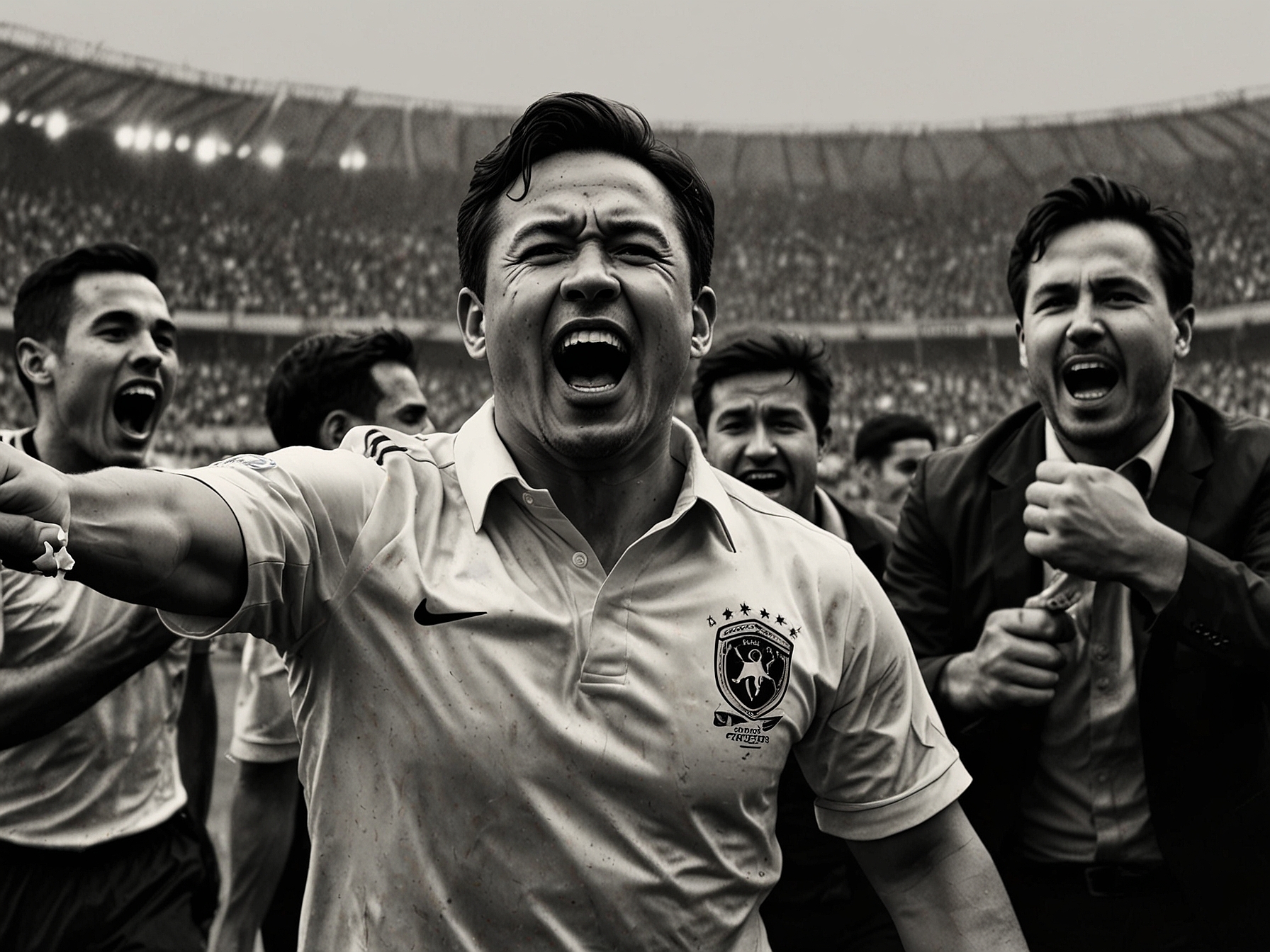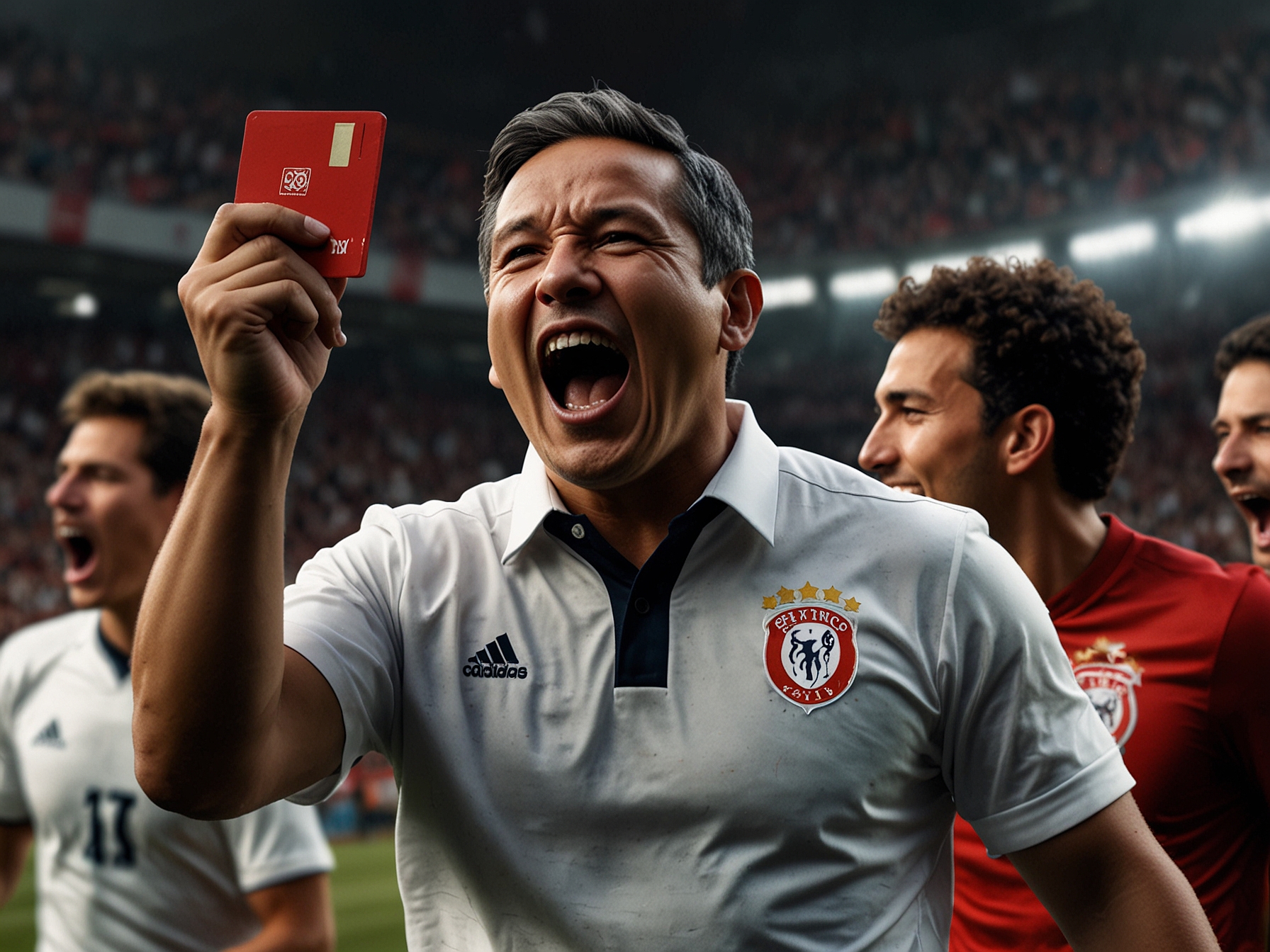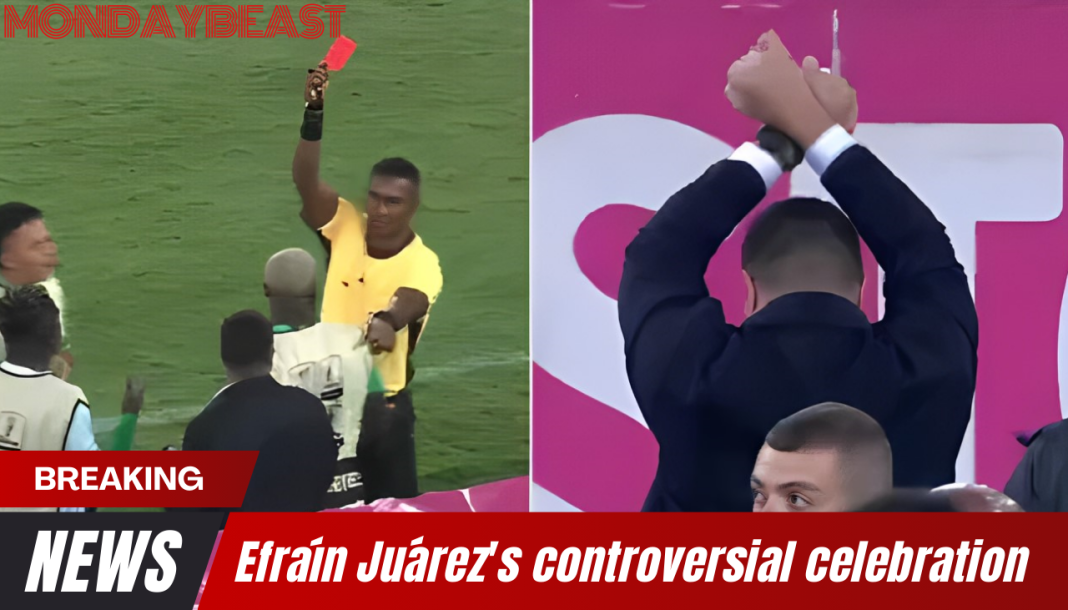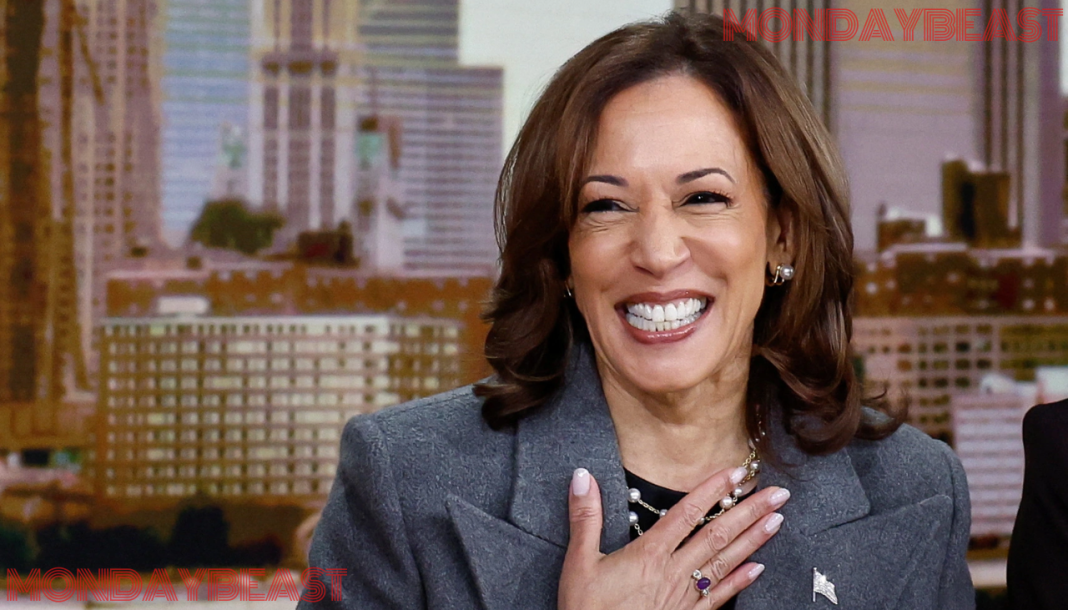In sports, emotions often run high. But does passion have a limit? This question arises in the wake of Efraín Juárez’s surprising red card during the Atlético Nacional versus Santa Fe match. Juárez, the head coach of Nacional, was sent off just 26 minutes into the game after a controversial celebration. It raises eyebrows and ignites debate among fans and sports commentators alike.

On the field, tensions can boil over in an instant. After Andrés de Jesús Sarmiento scored the first goal for Nacional, Juárez celebrated with vigor alongside his coaching staff and bench players. However, such exuberance didn’t sit well with the opposition. The reaction ignited a verbal clash between both technical areas, ultimately leading to Juárez’s expulsion. It’s hard not to wonder, was this overzealous celebration a worthy cause for dismissal, or was it an overreaction?
This incident unfolds in the context of broader disciplinary actions against Juárez. Just hours before the match, Colombian authorities indicated their intention to suspend him for three to five years due to a prior incident involving a similar celebration against Deportivo Independiente de Medellín. The controversy seems to be echoing throughout Colombian football, drawing attention not only to Juárez but also to how celebrations are interpreted in the heat of competition.

Juárez’s controversial actions have sparked discussions on sportsmanship, discipline, and the role of celebrations in sports. In a world where athletes strive to bring passion into their play, where do we draw the line? Celebrations can sometimes feel like a sheer expression of joy, but can they transform into an insult? The confusion lies in the nuances of the moment. He was seen exiting the pitch mimicking handcuffs, a symbolic gesture referencing his possible ban. Was this meant to mock the authorities, or simply an emotional release in a heated moment?
As fans, we often invest emotionally in our teams. We celebrate their successes and sympathize with their struggles. In cases like this, are we being too harsh, or too lenient? The dual nature of sports—beauty and chaos—is on full display here. The implications of Juárez’s actions reach far beyond this single match. They open the door to questions about accountability, respect, and the spirit of competition in Colombian football and beyond.

In the wake of this event, a spotlight shines not just on Juárez, but also on the broader culture of football. Are coaches allowed to express their emotions freely, or does that open the floodgates to chaos? Future games may be scrutinized more than ever, and whether or not Juárez’s actions will change the perceptions of celebrations in football remains to be seen.
As the dust settles, fans and analysts alike must grapple with these questions. They challenge us to think about what we accept as appropriate behavior in sports. The fine line between celebration and disrespect will likely continue to be traversed, tested in the emotions of the game. Can football retain its explosive passion while still adhering to conduct codes? In the passionate world of soccer, the answers may not be straightforward.




